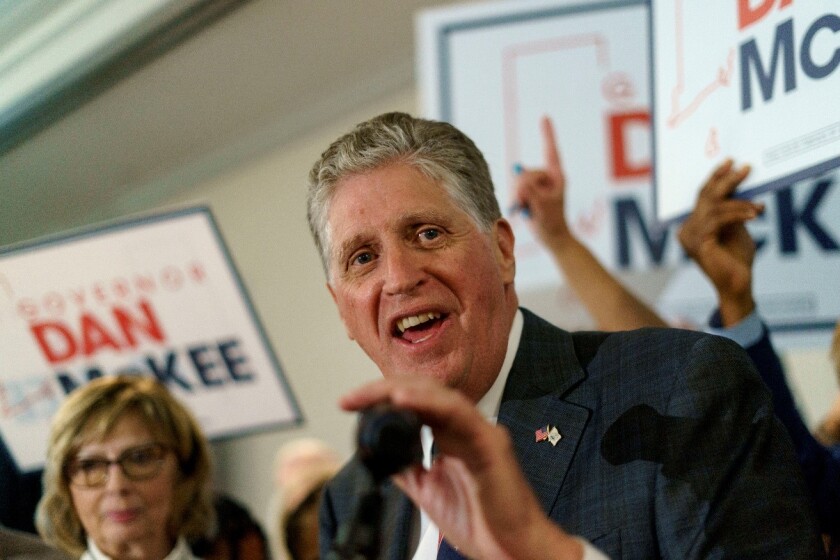Several years later, with Ms. Lee now in Congress, competitive primary elections this spring will test the power of the region's progressive movement.
While longtime Democratic figures tout their deep government experience, generational differences in voters' priorities — and in how they organize — are transforming how this year's nominating contests will be fought and won, political observers say. The progressive-vs.-establishment clashes will be most prominent in a competitive, open race for Allegheny County executive, and will also be seen in elections for County Council and district attorney.
State Sen. Jay Costa, D- Forest Hills, expects a handful of specific issues such as health care, housing, transportation and public safety to drive Democratic votes in the May 16 primaries. Progressive campaigns in recent years have been effective at reaching voters on specific issues through community groups and social media, he said.
"Long-standing Democrats need to recognize what's occurring and adapt to what's taking place and evolve along those lines," said Mr. Costa, the state Senate minority leader. Those who don't keep up, he said, "fall by the wayside."
With registered Democrats accounting for about 57% of the county's voters, Democratic nominees would be favored but hardly assured of victory in the November general elections. Republicans hope left-wing nominees will help open a path for GOP victories — including in the race for county executive, arguably Pennsylvania's most powerful elected official west of Harrisburg.
Especially in the county executive primary, Mr. Costa said, campaigns focused on core issues are more likely to resonate than those focused on government experience. The Democratic contest features seven announced candidates to succeed Rich Fitzgerald, who is term-limited.
The top candidates in the race are widely seen as Ms. Innamorato, D- Lawrenceville, a state representative first elected in 2018, Pittsburgh City Controller Michael Lamb and County Treasurer John Weinstein. County Council member Olivia "Liv" Bennett, former County Council member Dave Fawcett, county human-services worker Erin McClelland and mobile app developer Will Parker are also running.
Mr. Lamb and Mr. Weinstein have held their offices since 2008 and since 1999, respectively. Both are running partly on those years of experience and could appeal to many of the same voters, Democratic insiders watching the race said. Some suggested they could split less progressive voters, making it easier for a progressive such as Ms. Innamorato to win.
That would continue a local political trend — one that picked up steam in the early years of Donald Trump's presidency — of progressive candidates breaking a decades-old mold. Ms. Innamorato also has the support of Pittsburgh Mayor Ed Gainey, who beat two-term incumbent Bill Peduto in a progressive challenge in 2021 to become the city's first Black mayor.
No Pittsburgh mayor had lost a reelection bid since 1933.
"It's not your standard, establishment white guy who goes out and raises a bunch of money from the business community and legal community, gets endorsed and gets elected," said one Democratic consultant, who spoke on condition of anonymity to discuss local races candidly. "It's been a different-style candidate who builds campaigns from the ground up, raises money from the ground up.
"The candidates who are successful are the ones who build broad-based coalitions, who look to raise money from all sorts of people and who really grind it down and [campaign] the hard way and organize their way to win," the consultant added.
Some voters tied to the region's growing higher education and health care sectors appear drawn to the Democratic Party's progressive wing, said Michael Coulter, a political science professor at Grove City College. That shift is getting a boost from younger residents, who tend to lean further left than older Democrats.
"If Innamorato wins this primary — or even does well in a big field — that says to me a significant part of the Democratic coalition is progressive voters or people who identify with the [ Bernie] Sanders element of the Democratic Party," Mr. Coulter said.
To keep pace, some more traditional Democrats might take positions typically associated with progressives.
"You've got to find where your party is," Mr. Coulter said.
In a less closely watched race, Democratic insiders expect Matt Dugan, the county's chief public defender, to face an uphill primary fight against longtime incumbent District Attorney Stephen A. Zappala, Jr. Mr. Zappala, the top prosecutor since 1998, beat two progressive challengers in 2019.
Mr. Zappala is expected to enjoy an edge in name recognition and likely in campaign fundraising, too. In progressive challenges to DAs elsewhere, prosecutors' handling of specific high-profile cases have become key flashpoints, said Carissa Byrne Hessick, director of the Prosecutors and Politics Project at the University of North Carolina. Voters should explore how an incumbent makes prosecutorial decisions and whether a newcomer's approach would differ, she said.
"All prosecutors have that power, and many of them use it all the time," Ms. Hessick said. "They just don't speak about it publicly."
Michael Nelson, a political science professor at Penn State University, said the Allegheny races will illustrate whether local Democratic voters increasingly see themselves as progressives. The sheer number of candidates running may reflect a "role-model effect," he said.
"We're seeing candidates who are more progressive being more willing to run because they can look at other people and see" how to win, said Mr. Nelson, who studies state politics.
Joanna Doven, a former aide to ex- Pittsburgh Mayor Luke Ravenstahl, is challenging Ms. Hallam for County Council's at-large Democratic seat, as more establishment-aligned Democrats look to recapture a seat progressives won with Ms. Hallam in 2019. County Council will see other Democratic contests in District 13, where a technology executive is running against Ms. Bennett, and in District 5, where lawyer Chris Rieger and engineer Dan Grzybek are competing to succeed Tom Duerr.
In city races, activist Khari Mosley is seeking the Democratic nomination for the City Council seat held by the Rev. Ricky Burgess, while graduate student Lita Brillman and nonprofit professional Matt Mahoney announced primary challenges to incumbent council member Barb Warwick. Democrats Bob Charland, an aide to outgoing City Council member Bruce Kraus, and William Reeves, an organizer with the Casa San Jose nonprofit, are running to succeed Mr. Kraus.
No Republicans have announced campaigns for county executive or district attorney yet. But the more liberal the eventual Democratic nominees are, the easier the general election campaign will be for Republicans, county GOP Chairman Sam DeMarco said. He called the primaries "a great test of where the [Democratic] Party goes."
"From the Republican standpoint, it offers us a compelling opportunity," Mr. DeMarco said. Past county executives have "governed more from the center and as pragmatists, focused on attracting business and investment to the region and creating jobs."
Jonathan Cervas, a postdoctoral fellow at Carnegie Mellon University's Institute for Politics and Strategy, cautioned against reading too much into the primary results. Voter turnout for the off-year primaries is unlikely to eclipse 20%, which makes it tough to "make any kind of prediction about the future."
"The public has shifted their attention away from politics after a presidential election and certainly after a visible midterm election," Mr. Cervas said.
Whatever Pittsburgh-area voters decide in May could be a bellwether for national politics in 2024 and beyond, Mr. Nelson said.
"Shifts in national politics happen first at the local level," he said.
(c)2023 the Pittsburgh Post-Gazette. Distributed by Tribune Content Agency, LLC.
Related Articles












